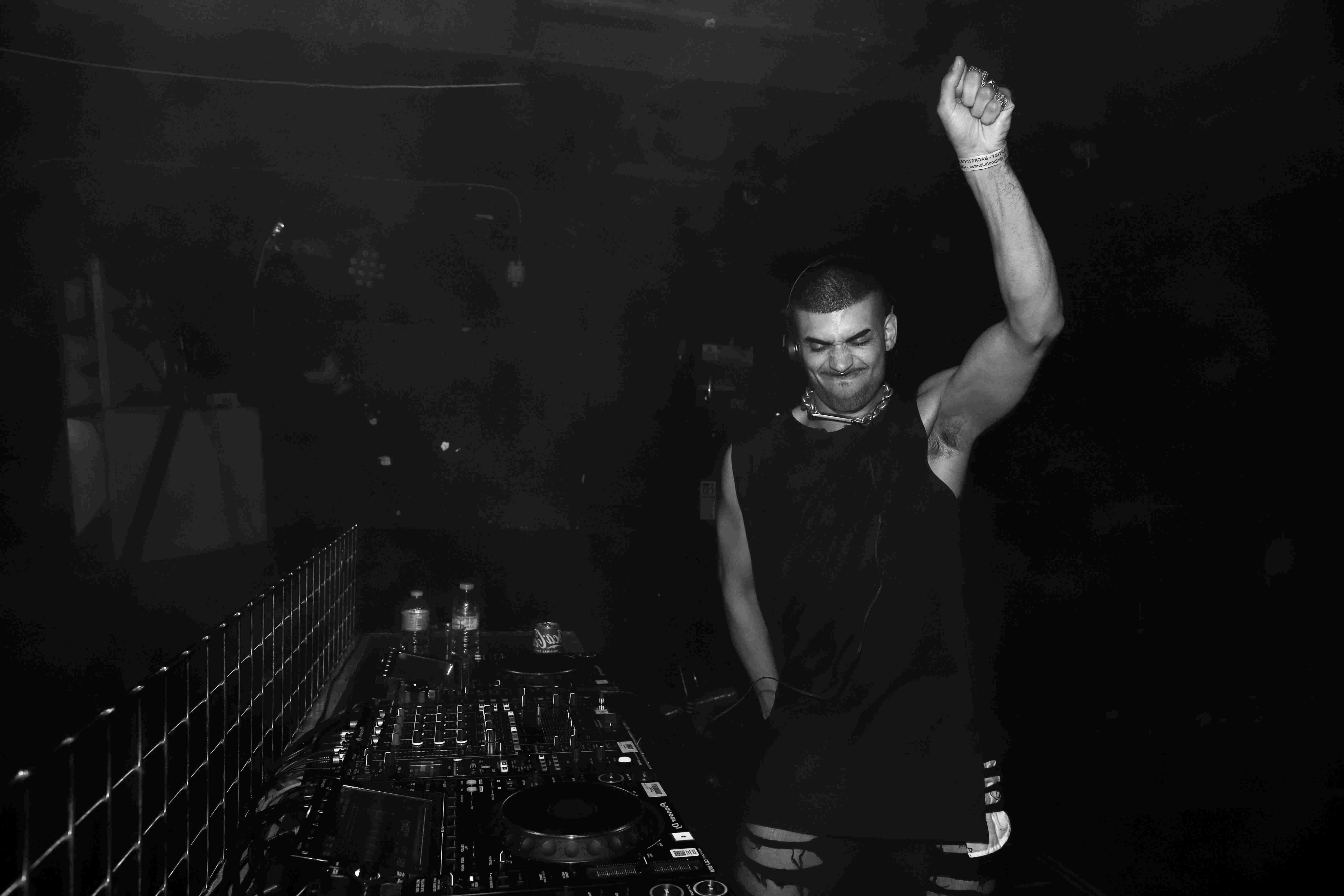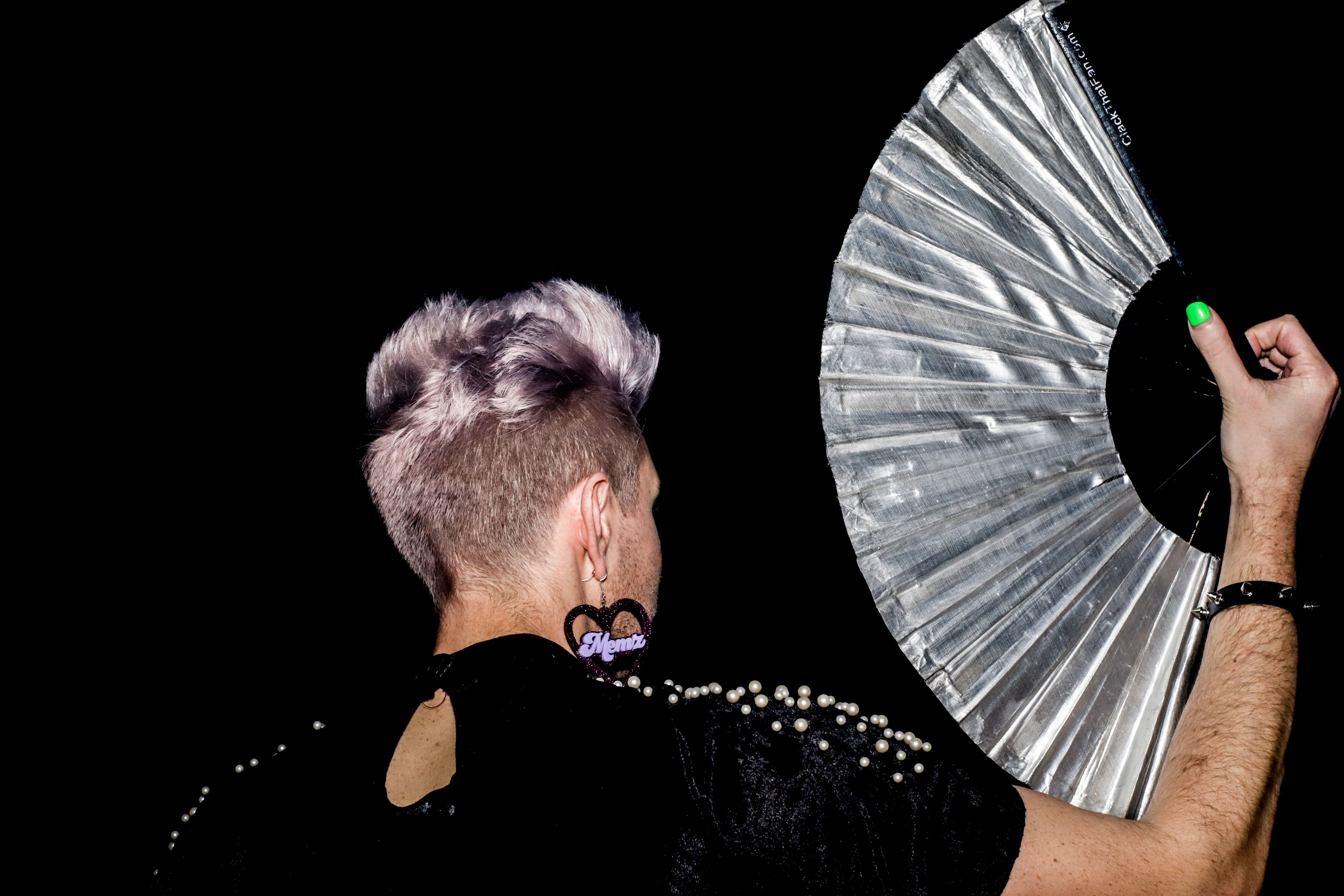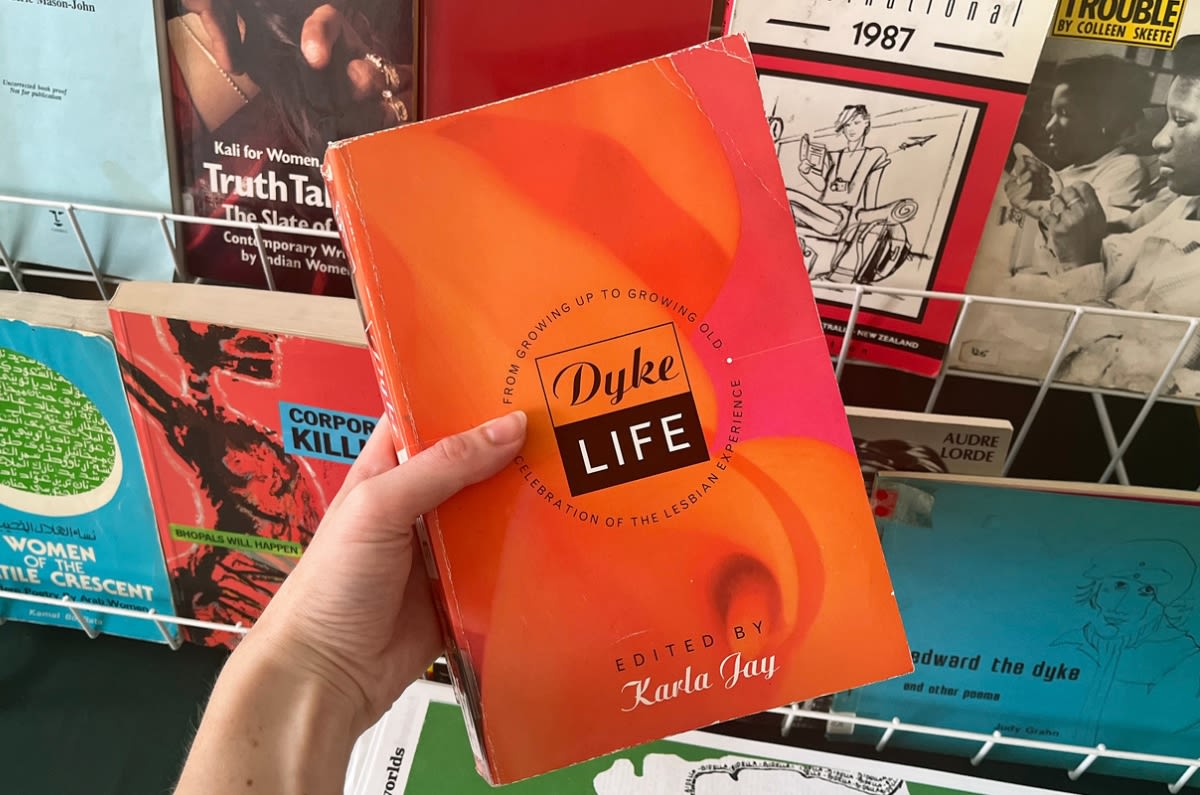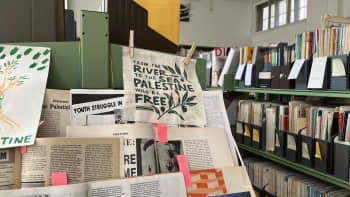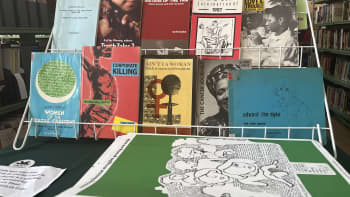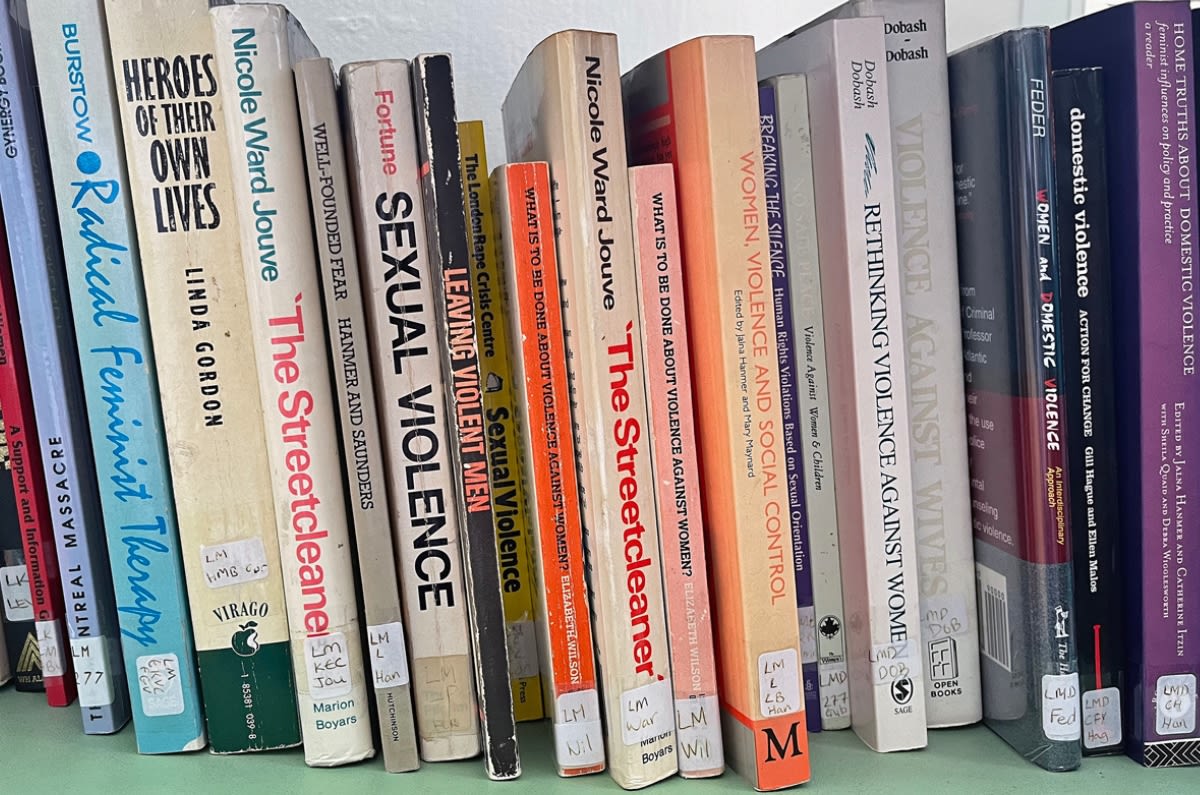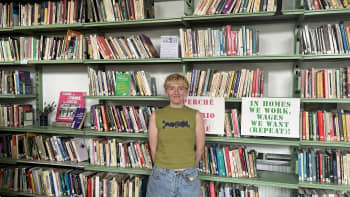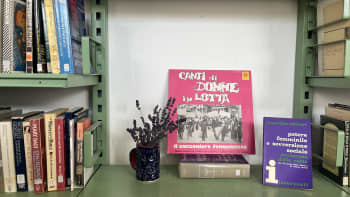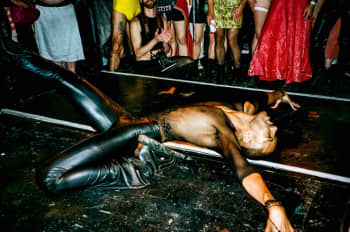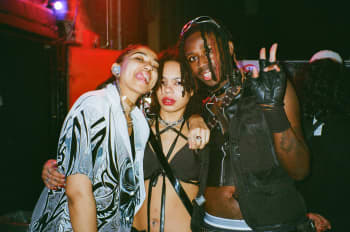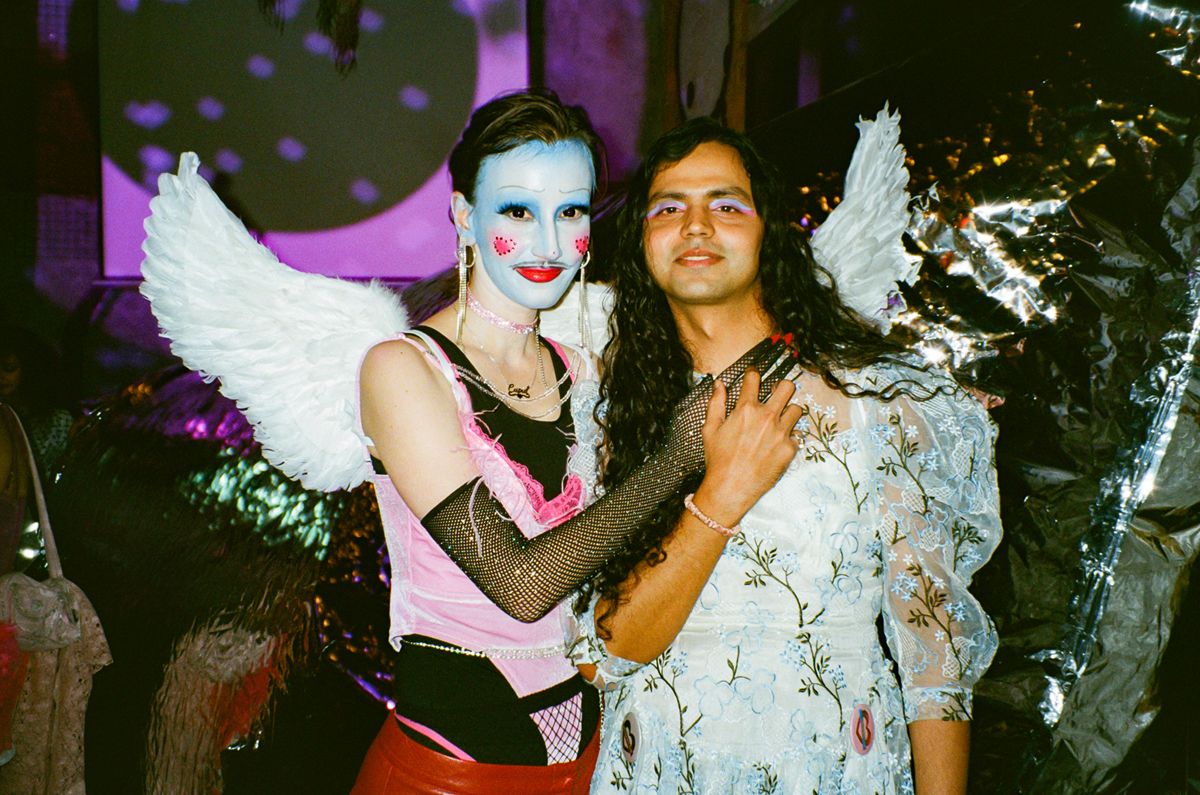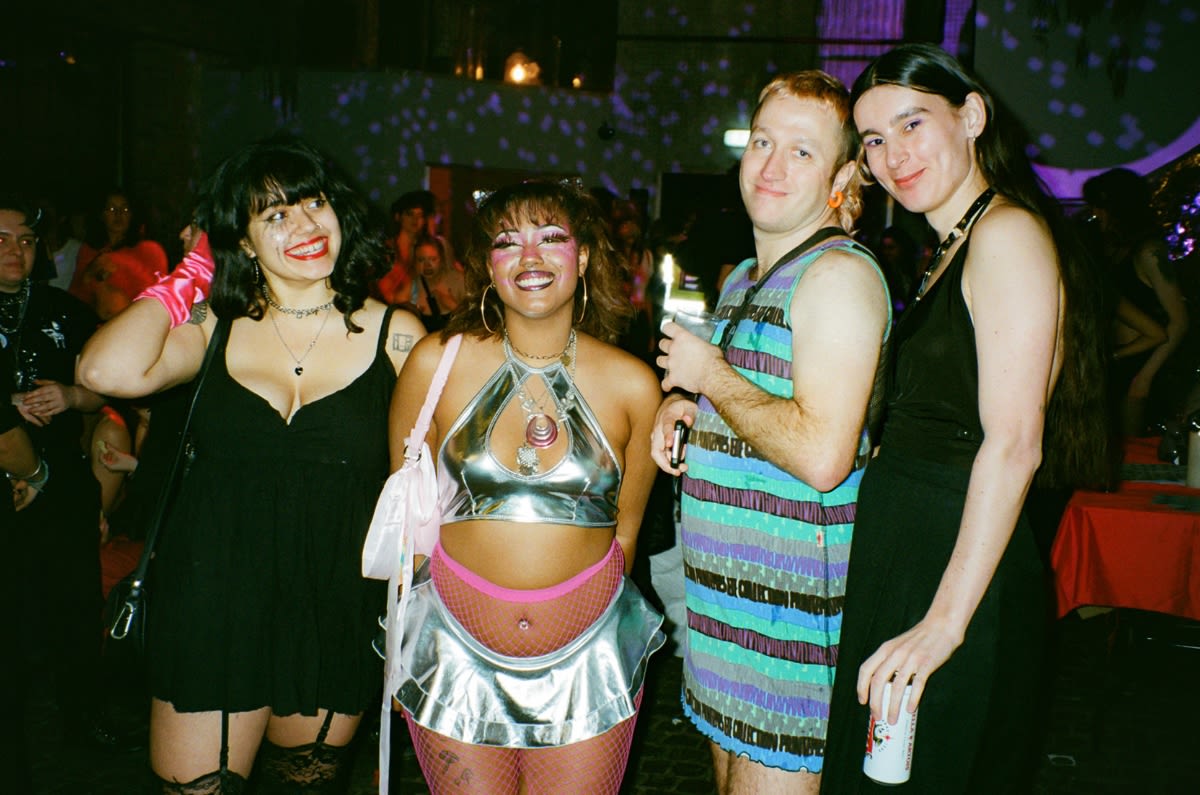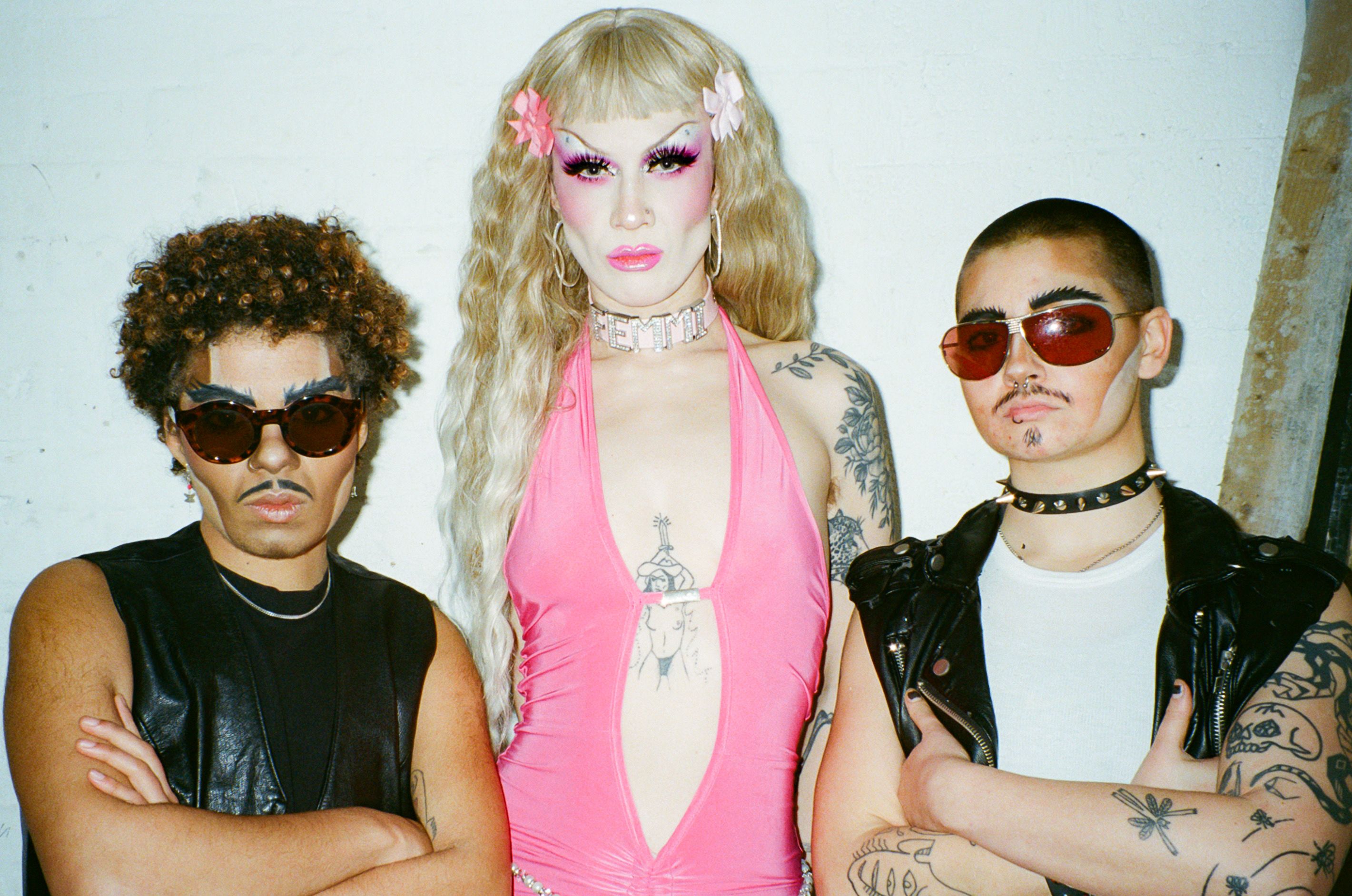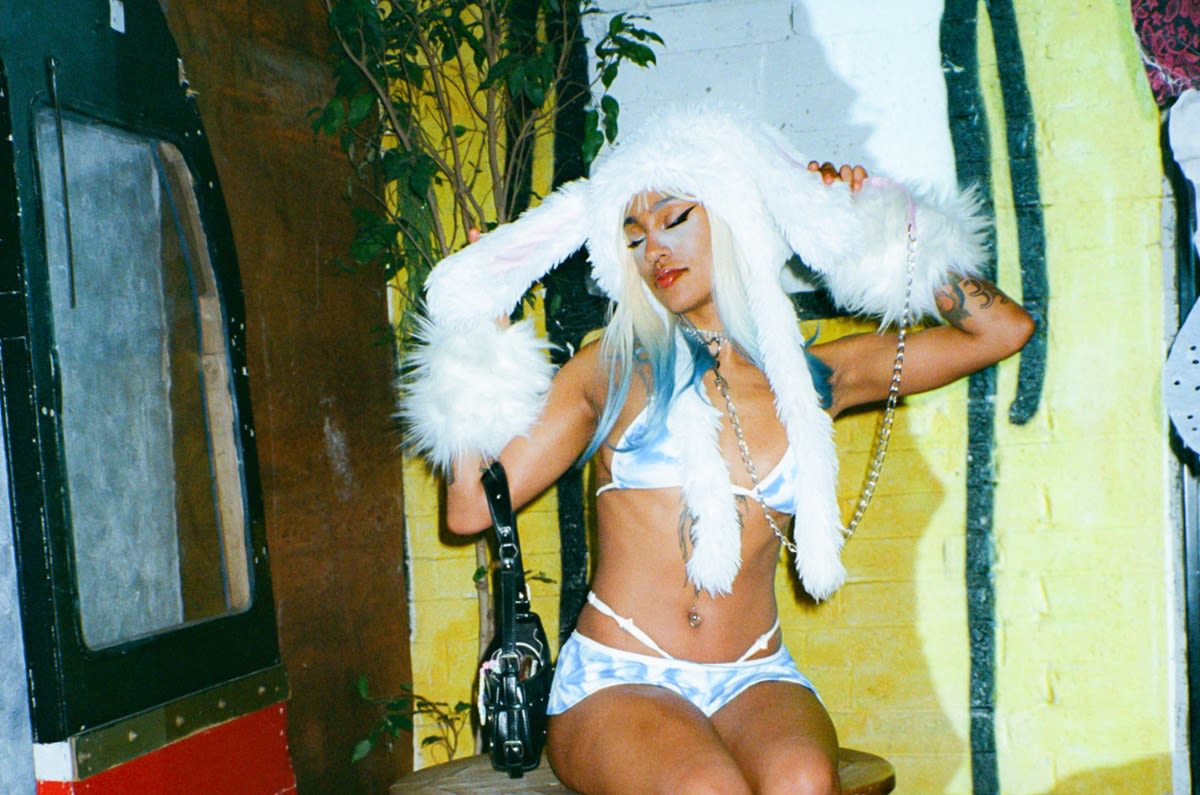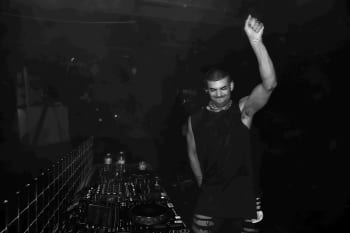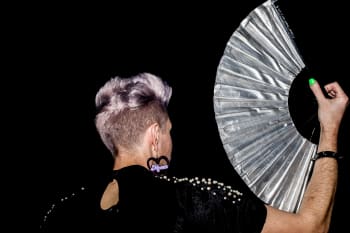Mobilising LGBTQ+ activism and resilience through nightlife and writing
We explore the possibilities of utilising cultural practices as tools for LGBTQ+ social change and the grassroots organisations in London effectively adopting them.
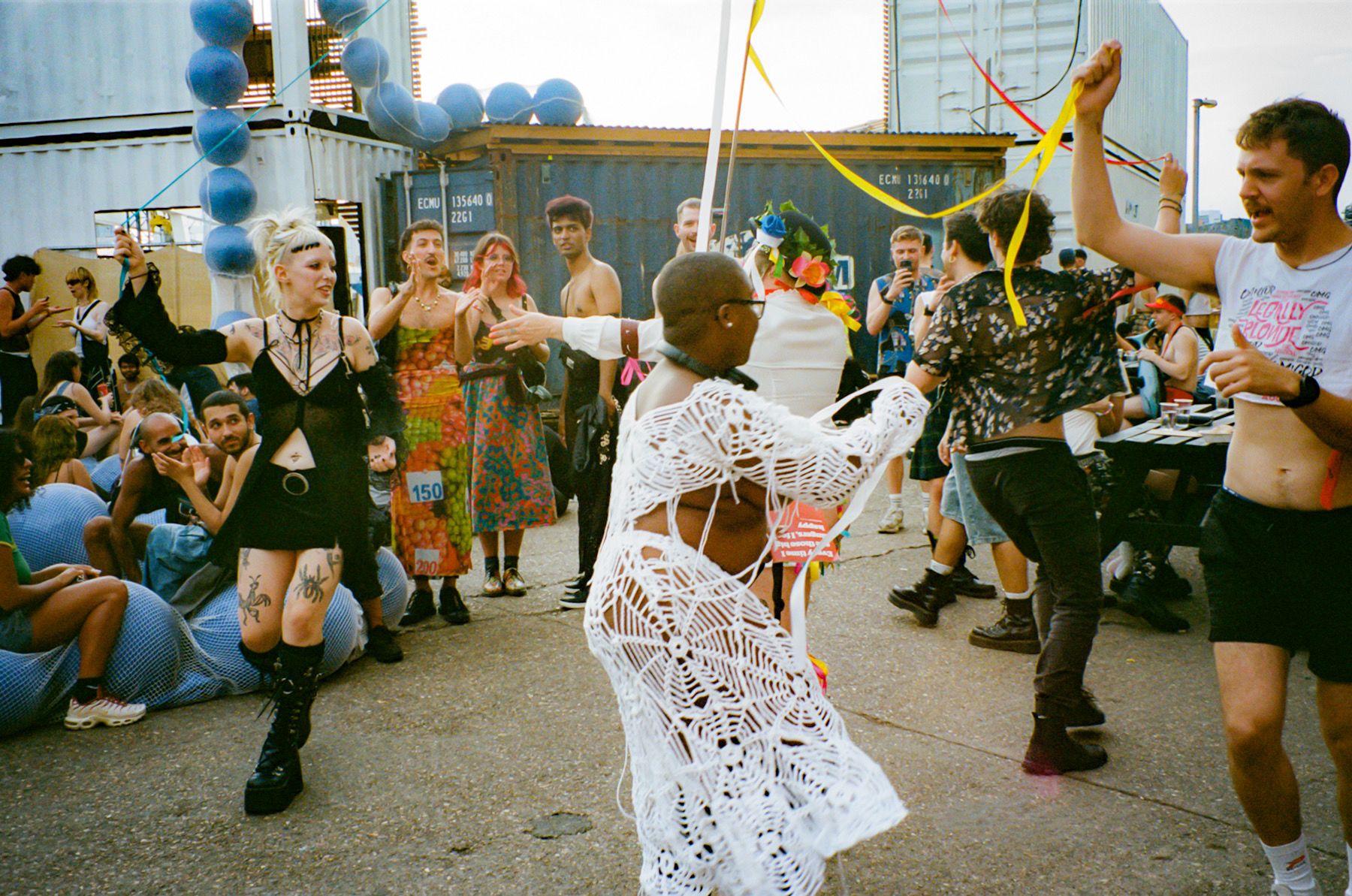
On 27 July, more than 55,000 people waving blue, pink and white flags and placards strode from Trafalgar Square to Hyde Park Corner for London’s annual Trans+ Pride, making it the most attended trans+ march in history.
A month earlier, the city's 52nd edition of Pride - dedicated to the entire LGBTQ+ community - also witnessed chart-topping attendance figures with 32,000 parade participants and an estimated 1.5mn spectators.
Despite the record-breaking attendance at this year's events, the LGBTQ+ community still grapples daily with archaic legislation, alienating narratives projected by politicians and media outlets, and the rise in hate crimes, outlined in the 2022-23 data released by the Office for National Statistics.
The British LGBTQ+ charity Stonewall published a statement in October criticising the government's inaction: "The increase in hate crimes against trans people by 11% in a year, and by 186% in the last five years, comes against a backdrop of UK Government drawing back its support for trans people and the growth of divisive and demonising rhetoric about trans people in society."
Stonewall also pointed to figures for hate crimes related to sexual orientation more broadly, highlighting a troubling 112% rise over the past five years, despite the decrease of 6% from the year before.
Other data sets posted on the charity's website showed that BIPOC LGBTQ+ individuals are statistically at greater risk of hate crimes than their white counterparts.
Head of Policy at Stonewall, Kieran Aldred, commented: “The official statistics are just the tip of the iceberg - the vast majority of LGBTQ+ people who experience hatred and violence in the UK do not report this. The Government's own National LGBT Survey showed fewer than one in ten LGBTQ+ people report hate crimes or incidents. Shockingly this includes only 37% of those who experience physical harassment or violence.”
In light of these troubling incidents, there has been a resurgence in academic fieldwork exploring effective coping strategies and methods of activism to help build internal resilience to combat minority stressors such as prejudice, microaggressions, traumatic life events, hate crimes and chronic stress.
A group of social scientists, Travis R. Scheadler et al., summarised a collection of these studies and their results in an academic paper entitled LGBTQ+ Grassroots Activism: An Opportunity for Resilience, which vouched for the positive outcomes grassroots activism and group activities had on the LGBTQ+ community such as building resilience, affirming self-identity and providing psychological relief.
One of the most compelling sets of revelations came from feminist scholars Hagen et al's research (2018) into activism among sexual minority women and transgender individuals, which established an abundance of healing opportunities and a positive correlation between activism and well-being.
Whilst the group of academics acknowledged that activism can present challenges in itself, there were an overwhelming amount of advantages - namely, the developed awareness of commonly encountered systematic oppression within individuals, which alleviated self-blame and boosted self-worth.
In addition, Hagen et al. found the social elements of activism and connectedness felt between sexual minority women and transgender activists raised feelings of happiness, hope, pride, excitement and energy.
Accordingly, cultural organisations can foster positive psychological benefits for oppressed social groups by enabling practices for people to come together to communicate their experiences and needs through creative means, offering alternative methods that can feel less tedious than traditional methods such as protesting or lobbying.
Since cultural practice is highly sociable, these organisations also offer a safe space for minority groups to gather locally, and form collective resilience and lifelong friendships in the face of adversity.
Whilst several cultural organisations in London are working tirelessly to make this magic happen for the LGBTQ+ community, as a minority group, lack of resources and funding are prevailing issues that restrict their ability to grow.
These constant battles to source funding for programmes that make a real difference in their lives might explain why some of the LGBTQ+ community find the Pride marketing campaigns of large corporations, often referred to as "rainbow-washing" as tokenistic and performative.
In this article, we explore how grassroots cultural organisations in London are utilising writing and nightlife as tools of activism and resilience to support the LGBTQ+ community through dark days.
Writing as a tool of activism and resilience
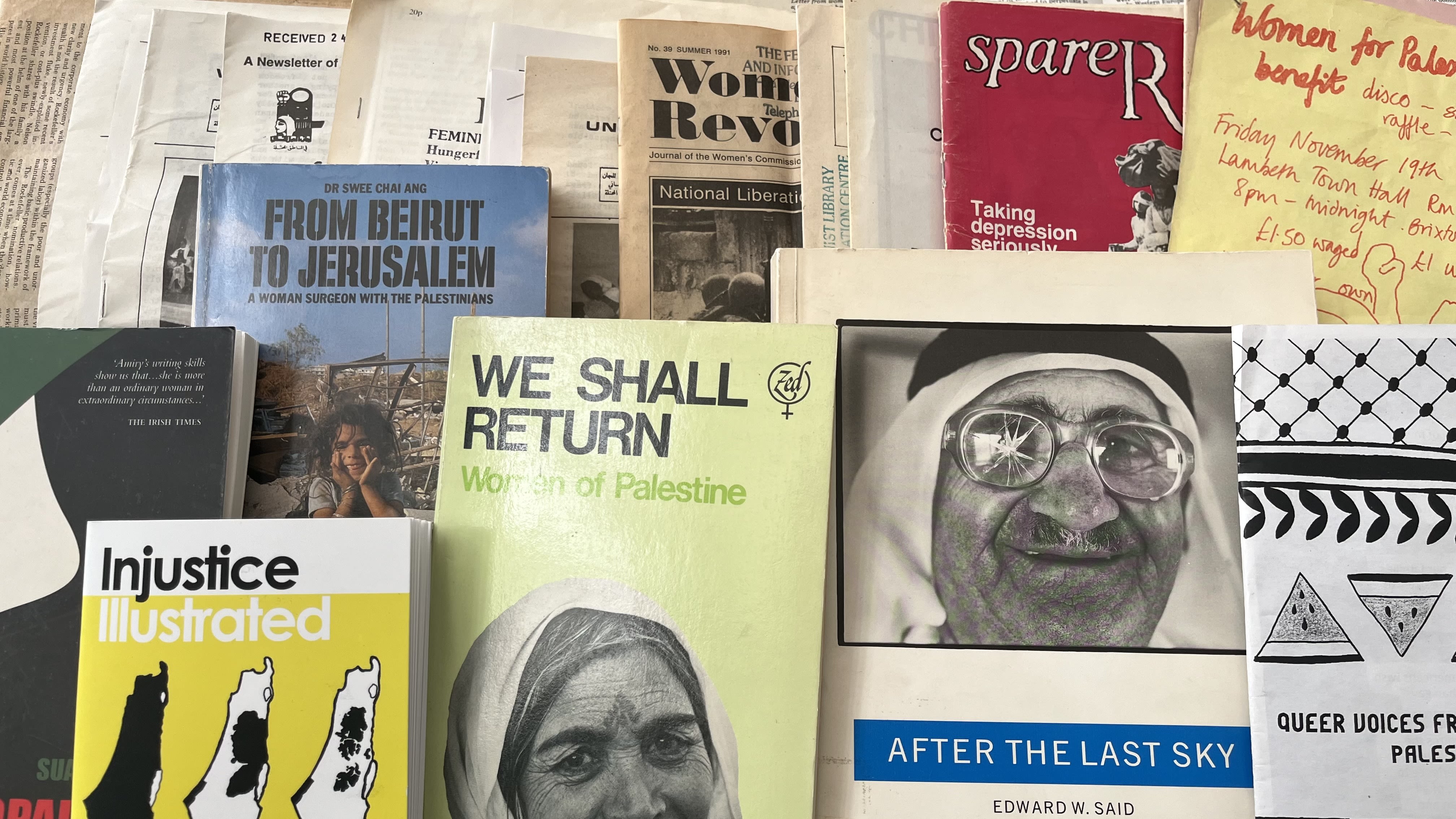
Throughout history, activists and marginalised communities have effectively utilised writing to yield support and stimulate social change.
Whether through letters, literature, manifestoes or articles, writers have documented significant facts and events related to social causes and conveyed lived experiences and ideologies in their quest for emancipation.
Of all the genres, literature has served as a beacon of liberation, particularly in states where oppressive regimes, legislation and censorship exist.
As essayist Tess Lewis penned in a literary review on resistance literature: "The death of the novel, if it should ever finally happen, would bring not just cultural loss, but moral and ethical impoverishment as well... That tradition of European letters was a life raft to many writers behind the Iron Curtain or the Great Wall."
Particularly in the 20th century, the LGBTQ+ rights movement had a track record of skillfully employing literature to challenge societal norms and offer new perspectives on gender and sexuality by inviting readers into the inner worlds of LGBTQ+ individuals and connecting them to abstract ideas and concepts on a visceral human level.
Often cited as a cornerstone of LGBTQ+ resistance literature, Virginia Woolf's Orlando (1928) was one of the first English novels that encountered the trans experience.
Woolf's experimentation with non-binary pronouns and her depiction of Orlando's gender-fluidity and pansexuality was undoubtedly groundbreaking for the period.
Another writer who courageously challenged societal norms about sexuality was James Baldwin with his 1956 novel 'Giovanni's Room'.
Set in Paris, the story traces the inner turmoil and conflictions of David, a young American, as he tussles with his moral compass and inescapable desire to be with men.
Told through the eyes of a Black man, the story also stirs rousing questions about white privilege.
Although initially met with rejection and a warning of the dangerous impact it would have on Baldwin's reputation, Giovanni's Room was later praised for its literary techniques and tender portrayal of a homosexual man that made a bold stamp against the fearmongering and dehumanisation of oppressed groups that characterised the 1950s.
Another notable mention that tugged on readers' heartstrings to spark social change was Christopher Isherwood's 1964 novel A Single Man, later repurposed by Tom Ford into the 2009 film starring Colin Firth.
The gutwrenching tale follows protagonist George's battle with aching loneliness as he pines for his late partner, Jim in secret.
Isherwood was commended for his adoption of the universally relatable themes of heartbreak and loss to demand the legitimacy of same-sex love.
© Lucy Rowan
© Lucy Rowan
Whilst literature has served as a tool for evoking empathy from wider society, academic writing has been just as important in laying the foundations for political and legal reform, provoking thought and rejecting societal norms.
In particular, the feminist movement and its radical theorists have been a driving force behind the LGBTQ+ movement owing to their intersectional goals concerning gender and sexuality.
Fronted by the ferocity of scholarly writing from the likes of Mary Daly, Audre Lorde and Gayle Rubin, Lesbian Feminism formed in the 1970s as an umbrella category of radical feminist theory that sought to uproot socially and culturally constructed concepts about sexuality and gender roles, bringing visibility to lesbian women.
Lesbian feminist writers Lorde and Cherríe Moraga who advocated for the presence of race in feminist discourse, have been applauded for their valuable contributions to the LGBTQ+ movement's current narratives and goals encircling the lives of BIPOC LGBTQ+ individuals, who are statistically more prone to hate crimes and violence.
Investing in grassroots programmes and organisations that support the publishing of LGBTQ+ authors and topics entangled with LGBTQ+ existence has undeniably fruitful benefits that stimulate social change from within and outside of the community.
Considering the internal benefits, the investment in more LGBTQ+ writing that depicts lived experiences nurtures a platform for readers afflicted by similar issues to feel validated and connected to something bigger - this is incredibly meaningful for those living in religious, cultural or political environments that prohibit them from embracing their gender or sexuality with pride.
From an external perspective, funding more LGBTQ+ writing assists in expanding educational resources available to the public, raising wider awareness of these issues and critical consciousness, which can prompt those outside the community to take action.
Through the formation of digital catalogues, there are even more possibilities to access, store and share these works, offering readers within and outside the community the chance to connect beyond borders, languages and lifetimes.
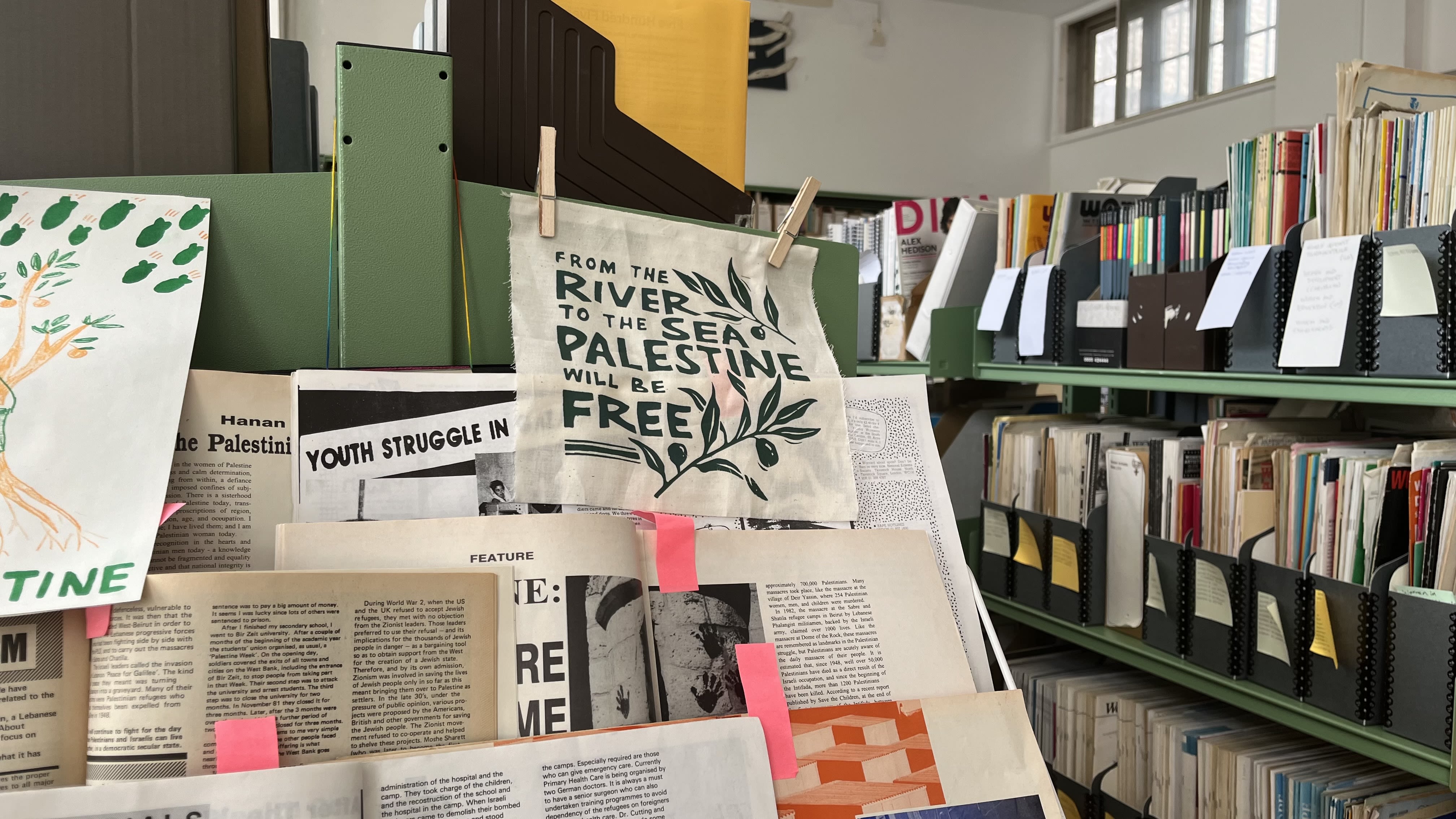
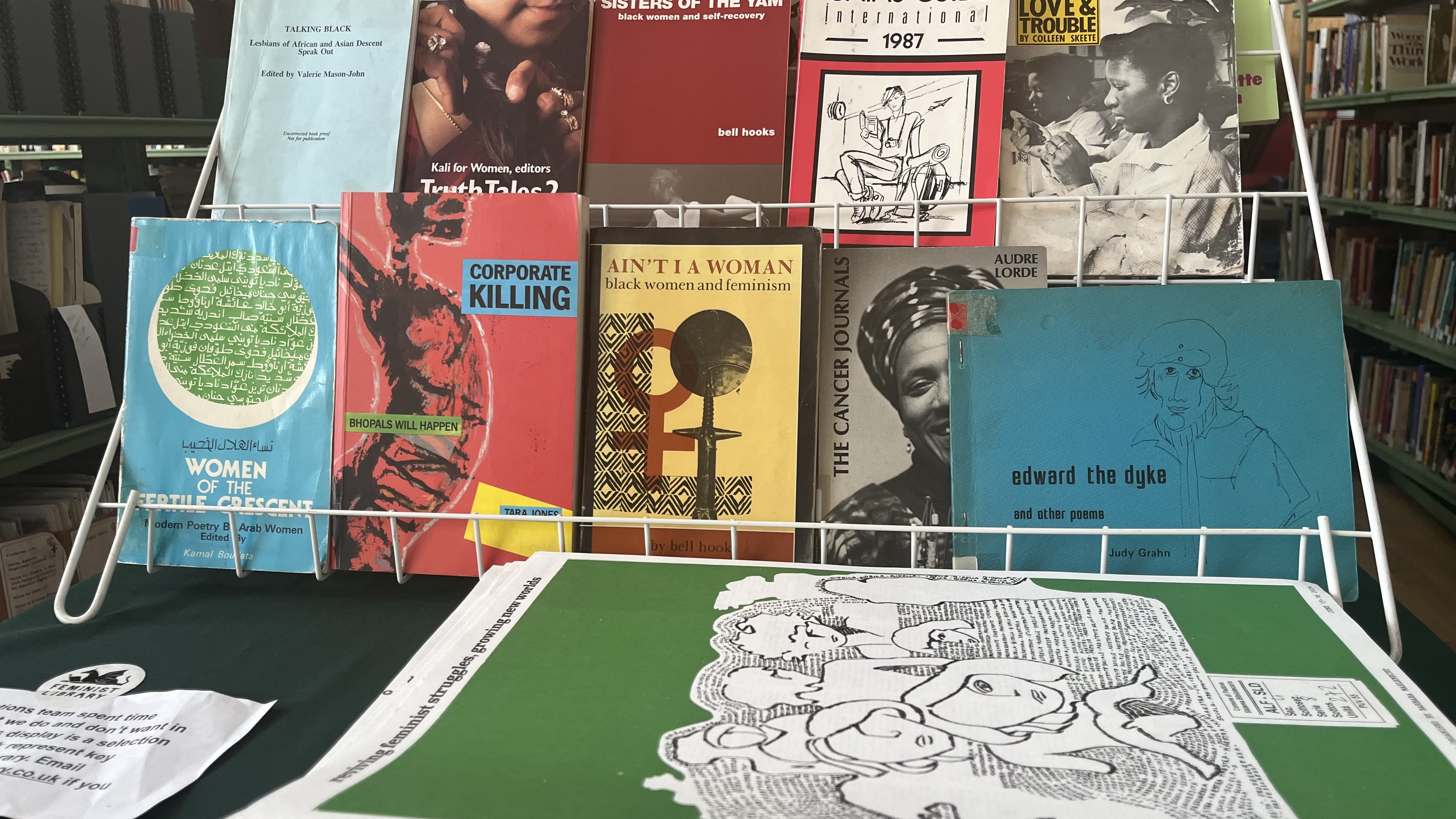
The Feminist Library
Since 1975, the Feminist Library in North Peckham has worked closely with DIY and smaller publishers to archive written materials dating back to the 1960s that document the “grassroots, accessible and intersectional” chapters of the women’s liberation movement.
The library's self-proclaimed "radical" collection comprises the UK's largest catalogue of feminist journals, magazines and newsletters, and 5,000 non-fiction and 2,500 fiction, poetry and drama literary works, all of which can be accessed online and in-house.
The Feminist Library also doubles as a community space that cultivates archival research, oral history projects, educational events, exhibitions and partnerships with other feminist organisations.
Public donations, the 'Friends of the Library' scheme and event ticket sales are integral to sustaining these offerings, as are the dedicated volunteers who curate the collections and projects.
Nana Opoku is the head of the library's culture team and the leader of the new initiative ‘Secondhand Sundays with Nana', a book fair inviting supporters to purchase duplicates of original feminist literature.
Besides fundraising for the space, the scheme endeavours to address the need for more tangible resources, aligning with its mission to provide accessible materials for all.
Although Opoku considers every period of feminist literature as meaningful in its own right, she resonates most with the second wave movement of the 1960s and 1970s with a special appreciation for the contributions made by Black feminist theorists and activists.
Outlining the possibilities of engaging with literary works, she expressed: "Through literature, we can amplify the voices of women and gender minorities, share knowledge and resources, and foster critical thinking and consciousness-raising. The diverse range of feminist literature housed in our library is a testament to the enduring impact of written words in advancing social change."
Working in the cultural production sector, Opoku is confident that all mediums of artistic practice can catalyse grassroots activism and systemic change by encouraging a deeper understanding of social injustices, provoking thought and sparking necessary conversations.
She said: "I strongly believe in the transformative power of storytelling. Whilst lobbying and marching have their place, cultural practices offer unique opportunities to impact hearts and minds deeply by illuminating the lived experiences of marginalised communities and gender minorities. When we share our stories through literature, art, music and theatre, we evoke empathy, challenge biases and humanise abstract issues.
"In essence, these creative forms of activism complement traditional methods, offering avenues for healing, resistance and mobilisation that expand feminist praxis and work towards shaping a more just and equitable world."
© Lucy Rowan
© Lucy Rowan
Opoku's voluntary work is impelled by her desire to witness the dismantling of the patriarchy and all forms of gender-based violence, as well as the full recognition of the humanity and agency of women, gender minorities, and transgender individuals in all spheres of life.
She zealously added: "Trans inclusivity is a crucial aspect of this vision, acknowledging and affirming the rights and experiences of transgender individuals within feminist movements and broader society. It involves creating spaces, policies, and practices that respect and affirm gender diversity, centring the voices and needs of transgender people in conversations about gender justice."
Despite the existence of trans-exclusionary groups - commonly known as TERFs - within the feminist movement, the library has not been shy in rebelling against these narratives through their efforts to invest in expanding their trans literary collections and hosting exhibitions dedicated to elevating trans voices.
An ode to the boundless solidarity between trans women, the library's exhibition, 'Trans Girl Takeover: Whatever happens, you’re my sister', will remain open for the public to visit until 15 September.

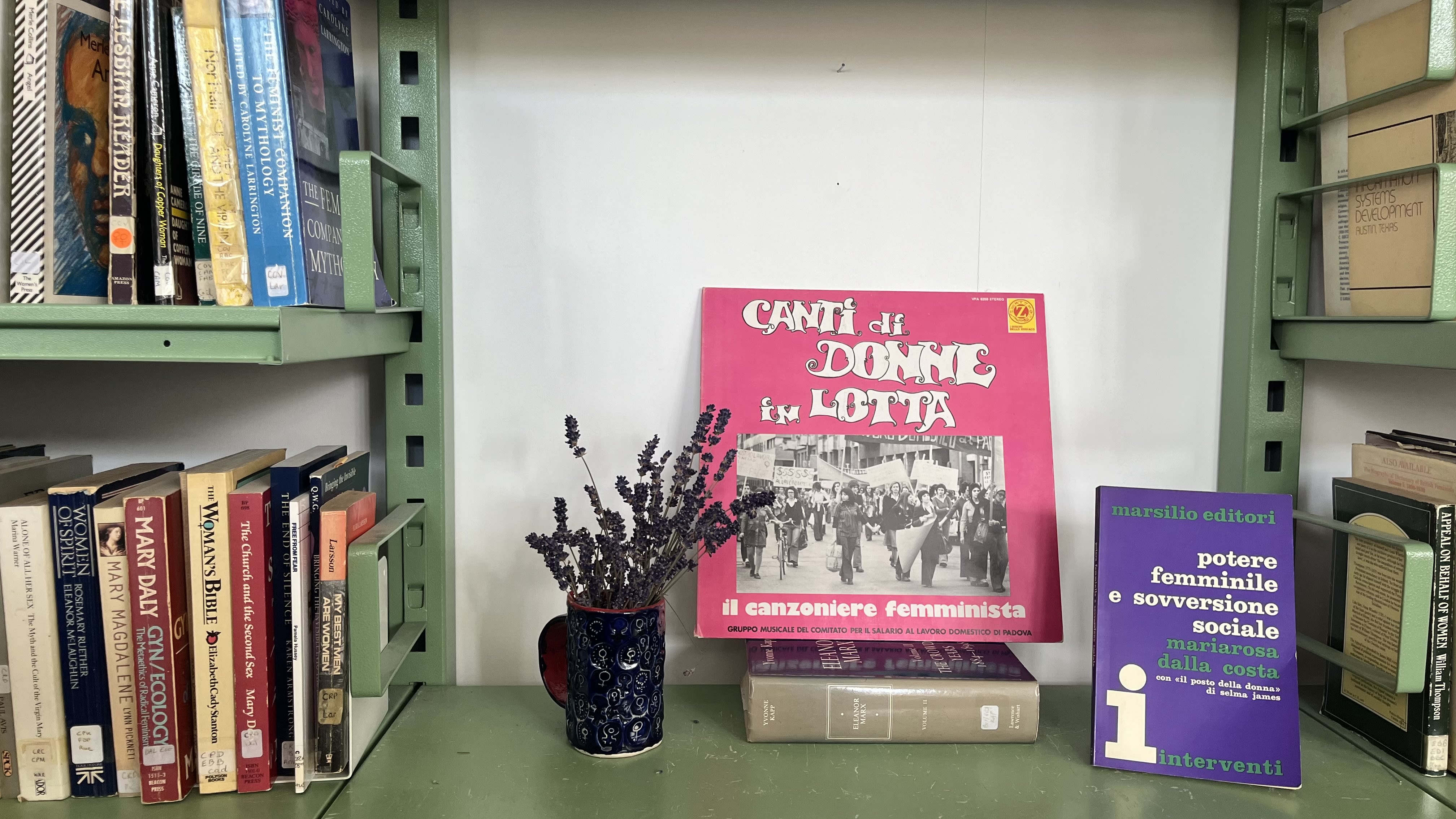
Nightlife as a tool of activism and resilience
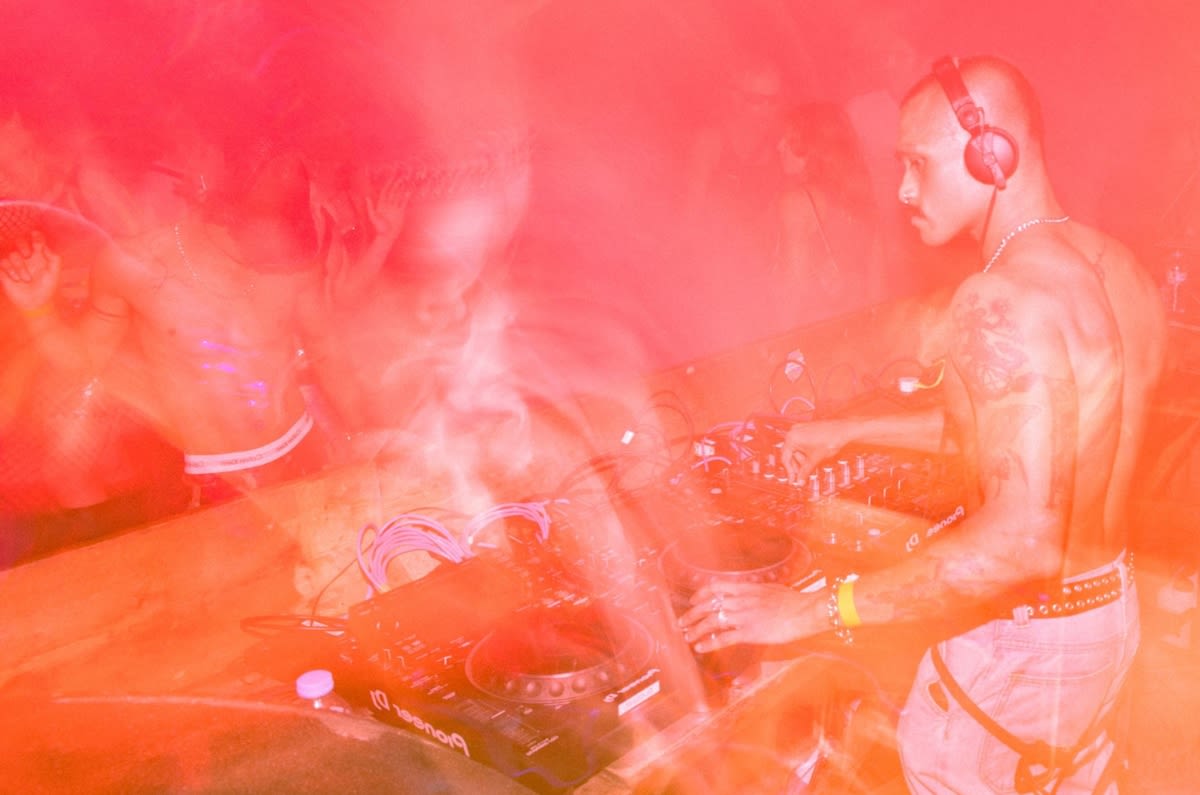
Earlier this year, co-founder of the live performance duo Dance Mums and proud femme dyke, Grace Goslin was over the moon to receive her acceptance letter from Oxford University to continue her research into the queer history of fundraising through nightlife as a PhD student.
When her nose is not buried in books traversing dancefloor histories, Goslin can be found playing for LGBTQ+ music events such as Fèmmme Fraîche and the Mighty Hoopla Festival as her alter ego DJ Areola Grande Latte.
Touching on the possibilities of utilising nightlife as tools for activism and resilience, Goslin said: “I think it's really important to connect the dots and realise that we fundraise through nightlife for our friends all the time, for top surgeries, court fees, and so on. It’s important to honour that history and notice that there is a strong queer history present. It's not just something that arose in 2024 out of necessity.”
From her academic work and active involvement in grassroots nightlife events, she considers a rich knowledge of, interest in and appreciation for queer dancefloor history as fundamental ingredients to create politically engaged parties that nurture resilience, fundraising and social change for the community.
She explained: "It takes more than people showing up and just being queer - it takes intention, action, knowledge and care. Whether it's the act of dancing or the music itself, both are related to the queer experience. There are so many people putting incredible work out there, who really know their dance music and queer history, and it shows."
Reflecting on the thriving state of dance music in London and the distinct presence of the LGBTQ+ community at these parties, she said: "As for electronic music being used as a political tool, if we go back to the very origins of electronic music, we find that Chicago House, Detroit House and Disco are all inherently queer. They were created, circulated and harnessed by the community. I think what we're seeing right now is a continuation of that."
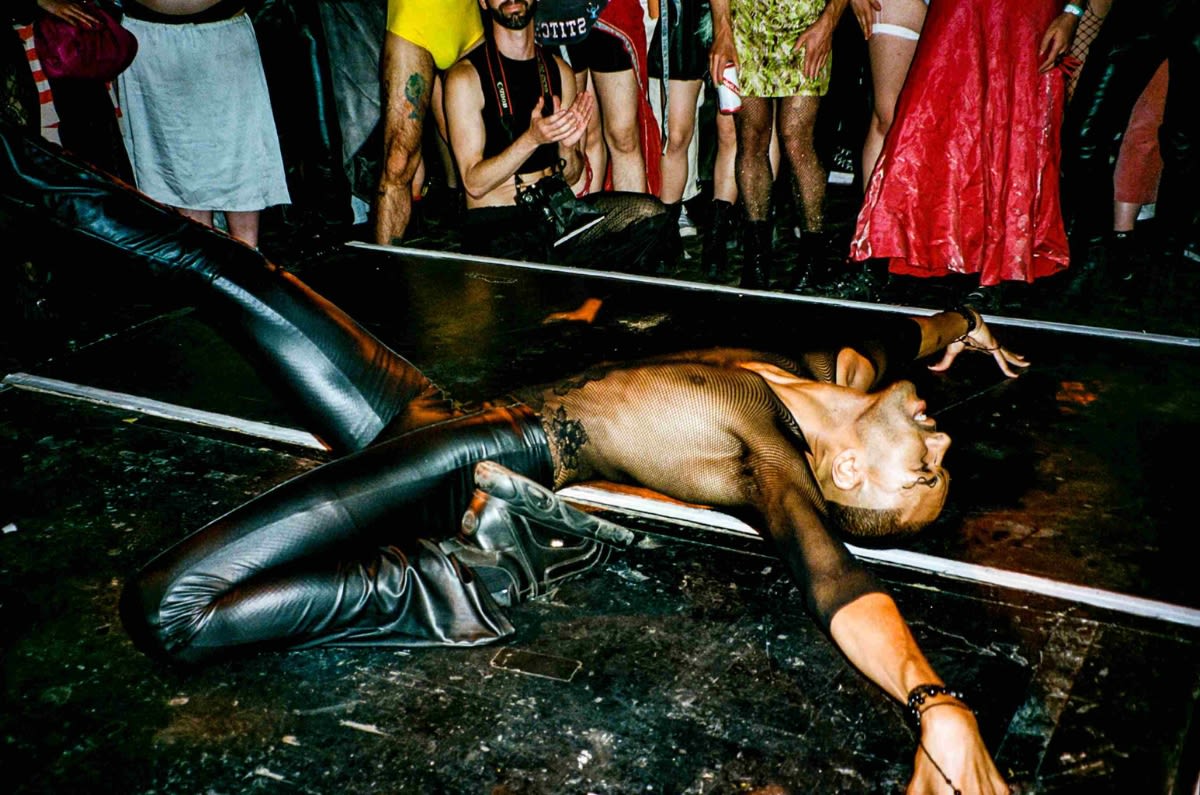
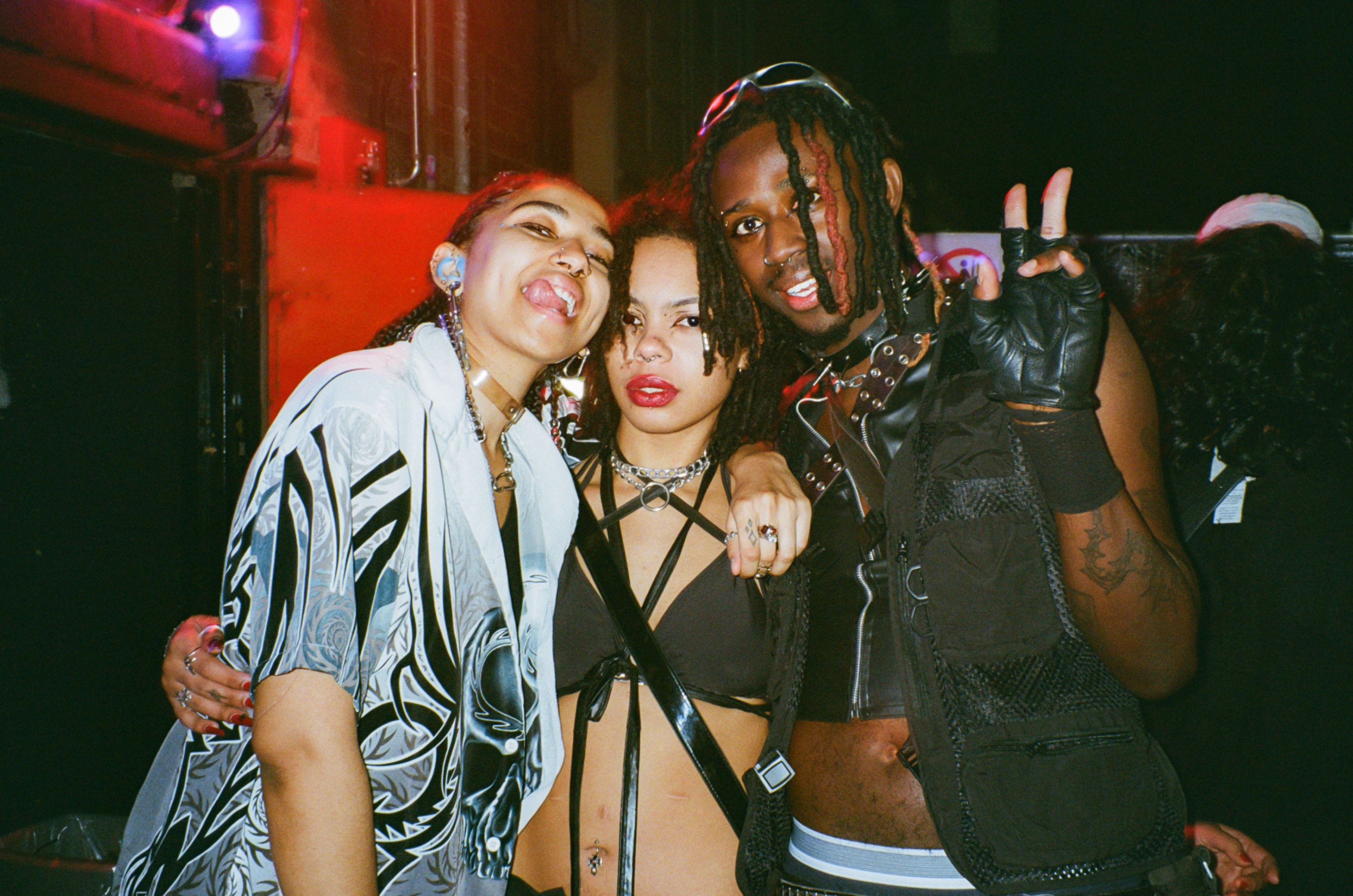
Riposte
Originally from Paris, 31-year-old creative Eden Topall-Rabanes co-founded the queer art rave collective Riposte in 2012 with fellow art students as a protest against their school's administration for not allowing them to exhibit their work at its gallery.
"In French, Riposte means comeback, an answer to", Topall-Rabanes clarified. "It was a comeback not just to the school, but also to the art world because it felt so competitive and impossible to show our work in any gallery as young artists."
With a flair for design and illustration, Topall-Rabanes took on the lead curator role, making posters in their spare time to promote the event, initially intended as an intimate space for artists to unite, share work, network and socialise.
© El Nine (IG @99999999cryboyssendpics)
© El Nine (IG @99999999cryboyssendpics)
When Topall-Rabanes relocated to London in 2017, they recall falling head over heels for the city's underground rave scene, which prompted the idea to relaunch the event to meet new people and artists to collaborate with.
They shared: "I started running the event from my house, and the foundation was very much about art, but it quickly evolved into this house party with DJs attending and artistic performances happening. People were queuing around the corner to get in, and as you can imagine, the neighbours were always complaining!
"We knew we needed to find a bigger space but didn't want to feel like we were invading these cold galleries. Since we naturally enjoyed going to raves and club spaces, it made sense to move Riposte there."
© El Nine (IG @99999999cryboyssendpics)
© El Nine (IG @99999999cryboyssendpics)
The transition to an official ticketed club space promised boundless opportunities such as expanding the team to assist with event welfare, promotion and curation, playing music later and inviting more people without aggravating neighbours, paying artists for their contributions and breathing life into installations with proper equipment.
These evolvements have led to Riposte becoming a monthly staple in the LGBTQ+ rave calendar.
Despite its success, Riposte's accessible and community-centred spirit has been preserved through the open call approach for booking LGBTQ+ DJs and performance artists or queer art markers wanting to sell their creations at the fee-free market stalls.
What sets Riposte apart from other events in the city is its all-encompassing ethos, as Topall-Rabanes emphasised: "When it started in London, the bigger events were mainly cis-gay orientated. We wanted to have a big event, but more for the queers, the genderfucks and the femmes. There was a need for creating safer spaces embracing the wider LGBTQIA+ spectrum, not just showcasing abs and society's standards for beauty. Sexiness extends beyond that."
© El Nine (IG @99999999cryboyssendpics)
© El Nine (IG @99999999cryboyssendpics)
Like a few other queer raves in London, Riposte hosts a playroom monitored by trained welfare teams to make sure everyone is safe and consenting whilst engaging in sexual activity.
Topall-Rabanes expressed: "I don't want to attract people for the wrong reasons by mentioning the playroom because we are a rave with a playroom rather than a sex party, but we have that space because we think it's important that queer people can discover and explore their sexuality safely.
"Sexual liberation is an integral part of queer liberation. We don't want people to be hiding in cubicles, potentially being caught by security and made to feel dirty, even though that could also be someone's kink. We like to create beautiful spaces. So we spend time and money renting equipment from dungeons."
Especially for members of the LGBTQ+ community who do not possess the opportunity to express their sexuality freely, providing events with safe spaces for them to do so is an undeniably valuable element to consider when curating nightlife events.
© El Nine (IG @99999999cryboyssendpics)
© El Nine (IG @99999999cryboyssendpics)
As the event has grown, it has not come without challenges - rental spaces in London are costly, especially for a grassroots organisation run by a minority group.
Although disheartening, it is unsurprising that the issue of funding continually rears its head.
Topall-Rabanes disclosed: "We're a bunch of creatives who have to be really on top of paying all these bills and managing tax processes that were never explained to us. It's really hard to get the right advice to understand what's going on a lot of the time. I think there's often this misconception that promoters make thousands and thousands. Although I'm sure it's true in many cases, for us it isn't."
© El Nine (IG @99999999cryboyssendpics)
© El Nine (IG @99999999cryboyssendpics)
Not only is Riposte exemplary of the adoption of cultural practices as tools of activism and resilience, but it has also been curated with intention, action, knowledge and care - the secret ingredients that queer history scholar Goslin outlined necessary for creating a politically engaged party that yields social change.
As a result, Topall-Rabanes and the team have successfully cultivated a safe space for the full spectrum of LGBTQ+ individuals to join alone or in company, to fundraise, share art, explore their sexuality, seek refuge from their daily stresses and most importantly, have fun.
